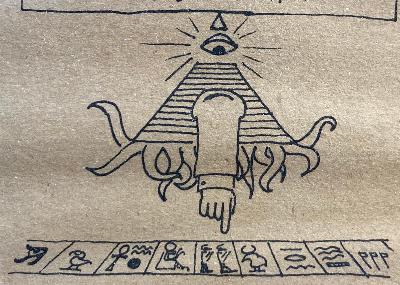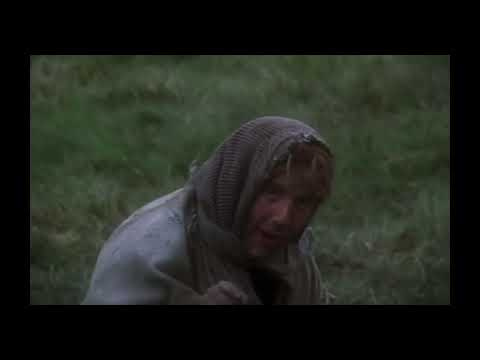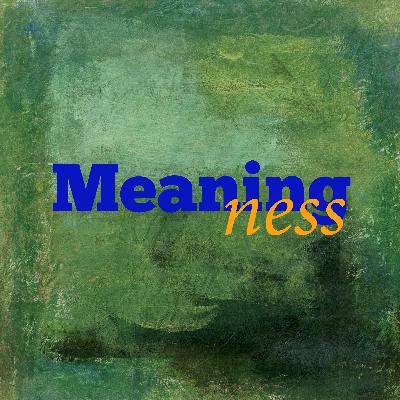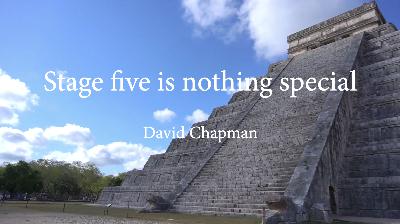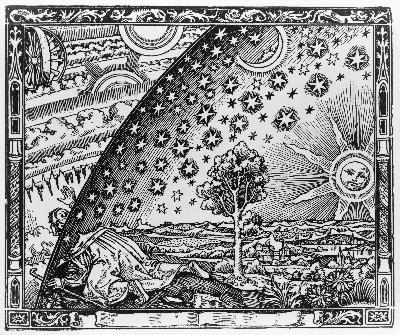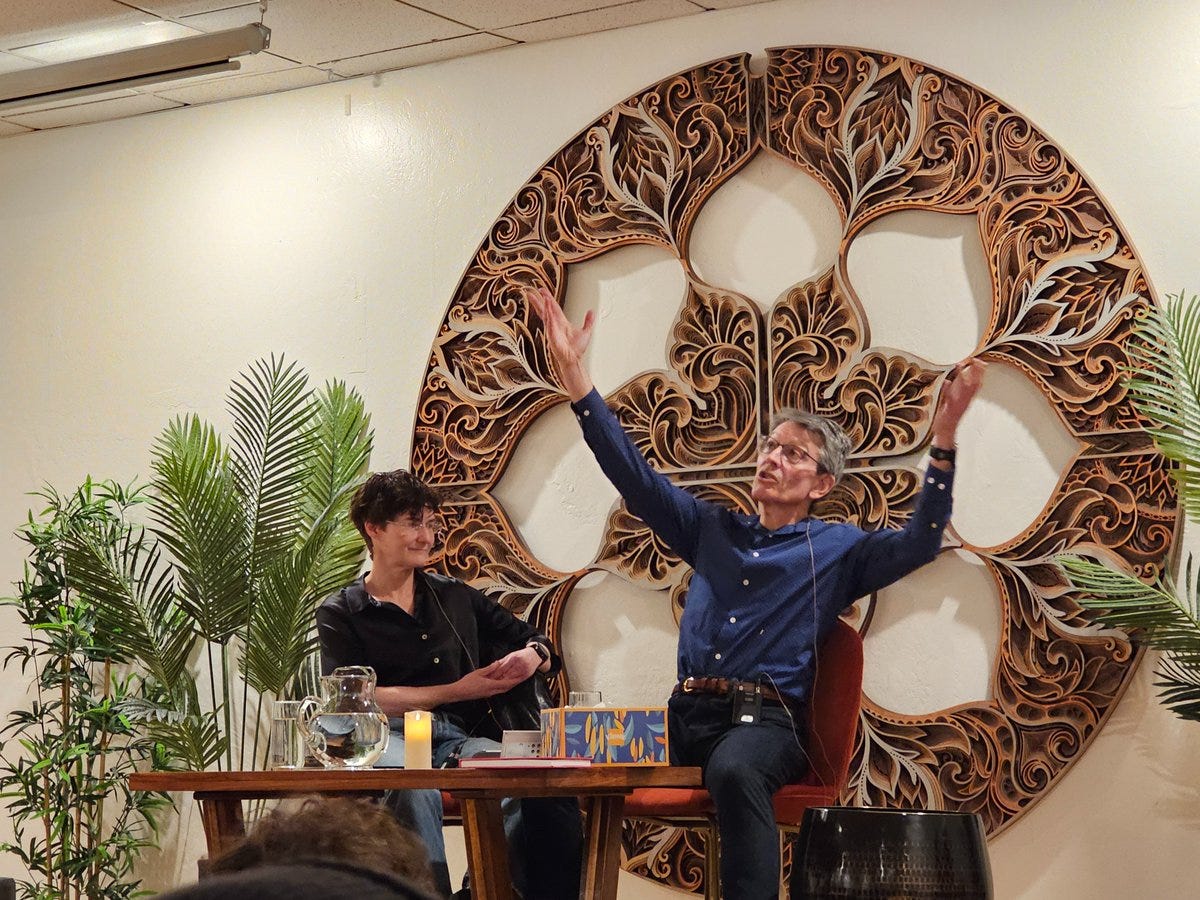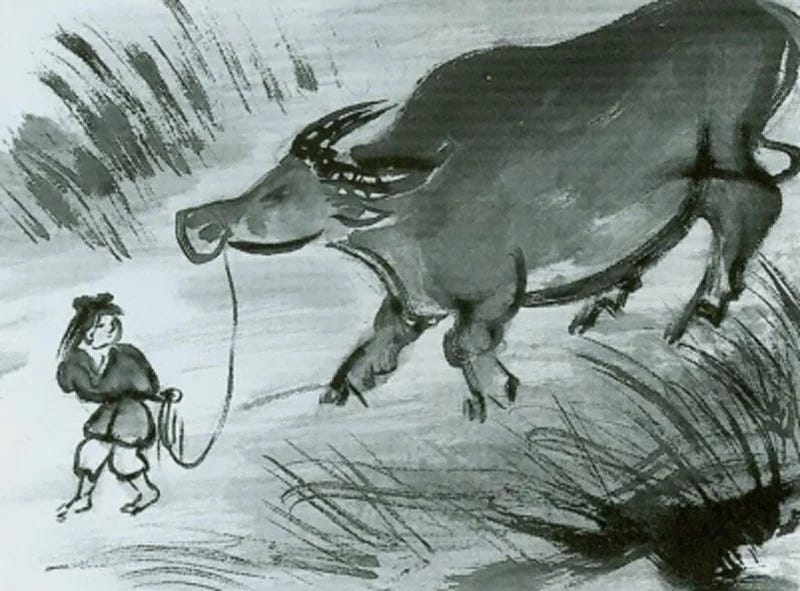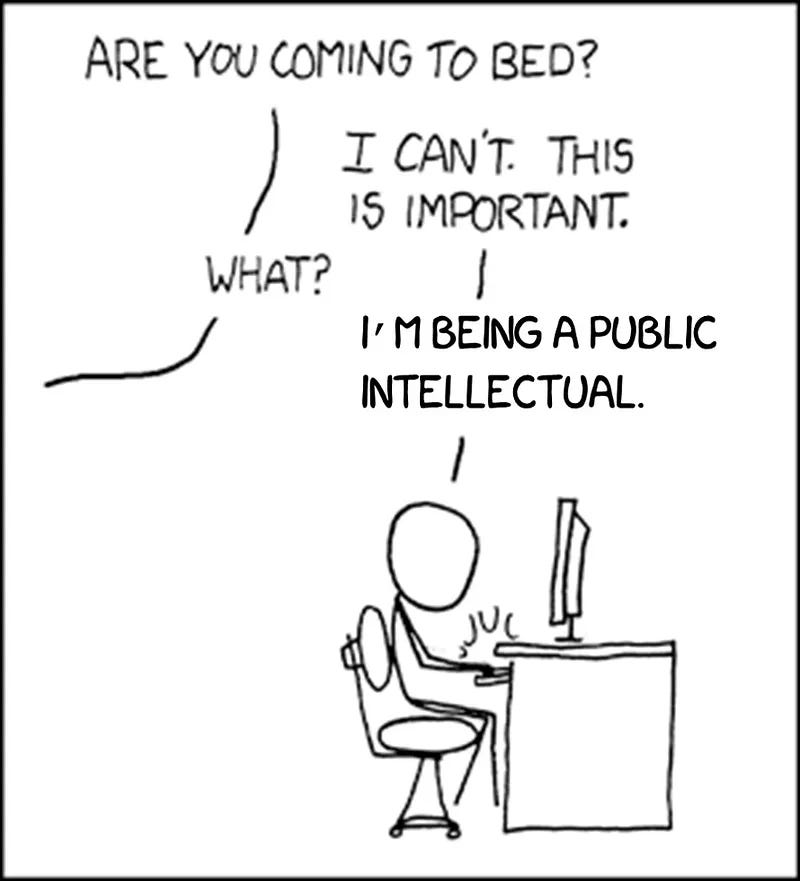When the proof comes as white light and angels
Description
The felt experience of mathematics — witchcraft and black magic — “Shut up, kid!” — what is a real number? — shocked and embarrassed — clouds all the way down — a choir of angels singing — painting Cthulhu’s third eye on the walls of our mathematics and science departments
Video from a monthly live Ask-Me-Anything!
The transcript is below. The web page adds fun illustrations, and a wonderful comic strip, as mentioned in the video!
But first, how to join us next time:
It will be Sunday, January 26th, 9 a.m. Pacific Time. To participate, you need to subscribe (free or contributing), if you haven’t already.
It helps me a lot if you pose questions ahead of time, so I can prepare a bit! You could post them as a comment here, or you can put them in the chat thread.
Transcript
The book Mathematica, by David Bessis
Big series of questions from Tobin Davis-Jones in the web chat, which I found fascinating because it connects with something that’s personally very important for me. His questions are, and observations concern, or are sparked by, a book called Mathematica by David Bessis.
He began by asking if I’ve read that. I haven’t. A number of people have recommended it to me, and said “this is going to be relevant for you.” I read a bunch of reviews and boy, it sure is relevant for me! I gave a copy to my spouse Charlie Awbery for their birthday, which was a couple weeks ago, and they’ve been reading it and raving about it. So I’m planning to borrow it when they’re done.
Envisioning: the felt experience of mathematics
Tobin says, “Students of rationality often complain that the symbols on the page of rationality are impossibly dull and intimidating. Bessis says that that’s because we neglect to explain that there’s an associated living internal experience of imagination and intuition that is required to really understand and apply formal methods.”
Yes! Part Three of my meta-rationality book is supposed to go into this in a lot of detail. If you go to the metarationality.com site and find Part Three, which is called “Wielding the power of meaninglessness: Taking rationality seriously,” that has a sketch, currently only, of what I’m going to be saying about this.
For lack of a better word, I call this process of “imagination and intuition,” I call it “envisioning,” because it is similar to mental imagery, but it’s not the same. It has a kinesthetic component. There’s a wonderful piece by Terry Tao, who’s one of the greatest living mathematicians, about how when he was trying to understand a particular difficult piece of mathematics, he was rolling around on the floor, his whole body, feeling the effect of some mathematical function.
There’s a great quote from Einstein about this, where he says, um, it’s partly sort of visual, but it’s partly… propriostatic, proprio… that word! So you’re actually grabbing the mathematical objects, and you’re doing things with them.
Like most of my posts, this one is free. I do paywall some as a reminder that I deeply appreciate paying subscribers—some new each week—for your encouragement and support. It’s changed my writing from a surprisingly expensive hobby into a surprisingly remunerative hobby (but not yet a real income).
I’ve thought a lot about this. I was a math undergraduate. I saw people struggling with this. And for a lot of them, the problem was, and I found this really difficult myself. I got better at it. But translating between the symbols and the really felt experience of the mathematical dynamics, the objects in motion?
Tobin asked, “Is this part of meta-rationality?” I categorize it in the book as being part of what I call “advanced rationality.” Advanced rationality comes when your cookbook of methods that you were taught runs out, and you have to confront this situation without any definite method. And envisioning becomes particularly important at that point.
Envisioning is also really important in meta-rationality, but I think it’s not necessarily part of meta-rationality as I use that term.
Is the stage theory of development correct or necessary?
Tobin asks, “You tend to position meta-rationality as a discrete stage that comes after rationality. Must there be stages?”
This is an excellent question. This is controversial in the literature on this topic. I have a draft webpage about this. It’s fairly high priority. I want to get to it sooner rather than later.
This stage model is just a model. Like all models, formal and informal models, you have to apply it intelligently in a particular situation, and bear in mind that its applicability is always an imperfect fit; there’s some nebulosity. And be aware of the ways in which the model can mislead as well as illuminate. The stages aren’t really discrete, they do shade into each other, and whether they’re even meaningful for a particular purpose can vary.
Tobin says, “Or, can meta-rational thinking be incorporated into teaching and learning even when a student hasn’t yet mastered rational techniques?”
Well, I think full mastery is not necessary, but you need to have basic proficiency with a chunk of rationality before you could be meta-rational with regard to that chunk. And meta-rationality particularly comes into its own when either you’ve got a choice of rational systems you might apply; or you can’t find any, and you have to create a new one from scratch. So there’s some amount of proficiency with rationality that’s needed first, but certainly this envisioning thing is something I think we could and should be teaching much earlier and much more.
Mathematics is witchcraft and black magic
There’s a quote here from Mathematica:
The more I advanced, the further I dove into the heart of mathematics, the more I learned to master the techniques that facilitate deep understanding and creativity, the more it began to resemble witchcraft and black magic.
Well, here at this point, my ears prick up in a big way! Because I have practiced witchcraft in Wicca before I became a Buddhist, and black magic is a big part historically of Vajrayana, which is the style of Buddhism that I practice. I’ve got a whole website called Buddhism for Vampires, which is essentially about that, and it’s sparked by my horror at realizing that this very nice religion that I was practicing, which is all grounded on taking a vow to always benefit all sentient beings— how can black magic be a part of that? This is a big question. So I’ve got a website about it. And wow, this connects with mathematics?
Mathematica, the book, goes on:
Descartes thought that mathematicians guarded their secrets for fear of losing their prestige. The real explanation is undoubtedly more trivial. Mathematicians are simply afraid of being called insane.
I’ve got another explanation which I will suggest. I’m not sure about this, but if you admit that you’re doing black magic when you’re doing mathematics, maybe that could be a bit embarrassing or problematic. So, yeah!
“Bessis describes many truly great mathematicians who, when pushed in private, describe their methods in mystical terms: whispered by God, visited by spirits in dreams, communing with the universe, third eyes and sixth senses.” (Sixth sense is envisioning, I think!) “These ways of thinking produced undeniable results, and yet there isn’t a place in our current rationalist culture for that kind of language.”
Yes, I’m constantly down on rationalism for being an inadequate, incomplete, wrong story about how rationality works, and Part Three of the meta-rationality book is my alternative story about how mathematics works, and about how rationality works: science, engineering, mathematics.
“These are brilliant mathematicians with real results trying to tell us something about how their brains do rationality.”
Yes, it’s not what you get taught in the STEM curriculum, which teaches you rationalism, which is a basically religious theory of rationality, which is unhelpful. I observed this a lot. I did an undergraduate degree in mathematics and then I did a PhD in computer science; while I was doing that, I took a bunch of graduate level math courses. So I saw a lot. There’s my own experience of doing mathematics, and other STEM subjects. I went on and I did a lot of molecular biology, and then worke

